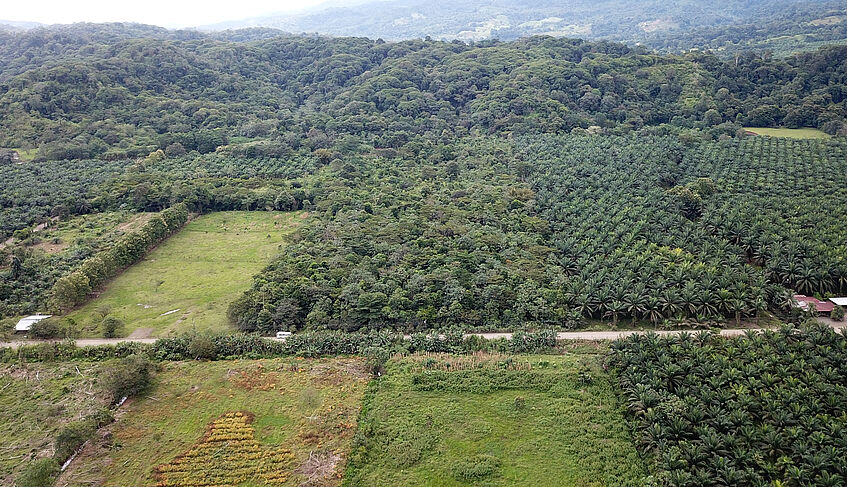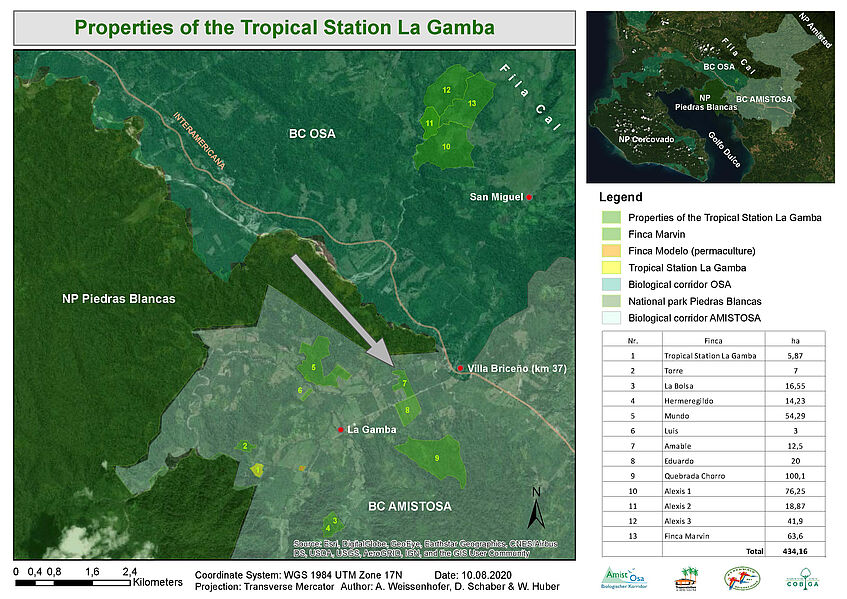Finca Amable

Overview
Area: 12,5ha
Location: North of the street Villa Brizeño – La Gamba. 70m asl.
Vegetation at purchase: pasture consisting of the cultivated grass Paspalum paniculatum (Poaceae). Small forest islands along the Río Bonito.
Date of purchase: Taken over by the Verein Regenwald der Österreicher on July 22nd, 2016.
Funding: The reforestations were financed by the Verein Regenwald der Österreicher.
Projects:
Research projects of the University of Vienna and the BOKU Vienna (Monitoring program)
Reforestation and forest restauration
Areas of natural succession

Description
The Finca Amable lies north of the road from La Gamba to Villa Brizeño (km 37) and is surrounded by oil palm plantations on two sides. The finca borders the Río Bonito and the forests of the National Park Piedras Blancas to the north and the Finca Eduardo to the south, which also belongs to the Tropical Field Station La Gamba and connects with forests of the Fila Gamba. This creates a unique forest corridor between the Fila La Gamba and the National Park Piedras Blancas.
The soils are influenced by ground water and drainage ditches had to be dug before reforestation could commence. The Río Bonito overflows its shores several times a year and floods the Finca Amable.
More than 10.700 trees from 205 tree species were planted between 2013 and 2016 in a defined grid system. Commonly planted tree species are: Anacardium excelsum (Anacardiaceae), Aspidosperma spruceanum (Apocynaceae), Calophyllum brasiliense, C. macrophyllum (Clusiaceae), Caryocar costaricense (Caryocaraceae), Cedrela odorata (Meliaceae), Croton schiedeanus (Euphorbiaceae), Garcinia madruno (Clusiaceae), Pachira aquatica (Malvaceae), Tabebuia ochracea (Bignoniaceae), Vitex cooperi (Verbenaceae), Symphonia globulifera (Clusiaceae). The mortality reached 17.5%.
A diverse secondary forest has already grown on the reforested areas of the Finca Amable (as of July 2020). The grass Paspalum paniculatum (Poaceae) continues to dominate the abandoned test areas were no trees were planted. Interestingly, the undergrowth is poor in species, which is probably due to the destruction of the natural seed bank.
The reforestations and natural succession on the Finca Amable are advised scientifcally by the University of Vienna and the University of Natural Resources and Life Sciences, Vienna (BOKU).
